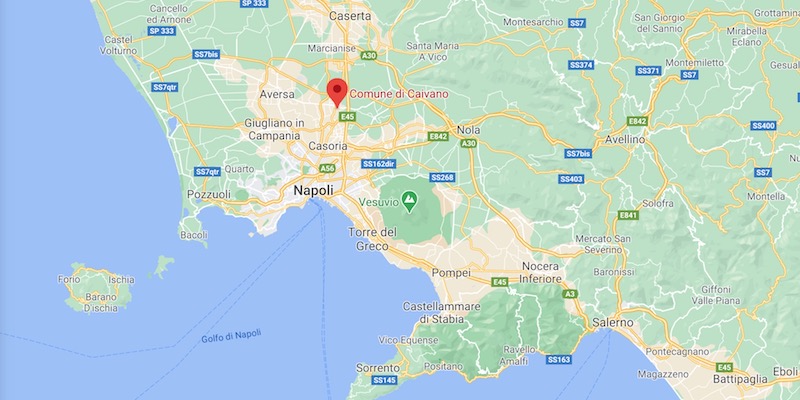As deputy finance minister Jan Sarnowski argues, limiting the abolition allowance is not guided by a fiscal goal. He adds that it is about meeting international obligations and making it harder for tax fraudsters. Profit for the budget may be as high as PLN 210 million per year.
–
Limiting the so-called abolition relief is one of the solutions included in the draft amendment to the act on personal income tax, the act on corporate income tax, the act on flat-rate income tax on certain income earned by natural persons and some other acts.
–
– This is not much considering that only Estonian CIT will reduce tax revenues by over PLN 4 billion next year. We are not guided by a fiscal goal, but by the implementation of international obligations and making it difficult for tax fraudsters – Sarnowski assured.
–
Impact on the tax rate
As he explained, since 2008 there has been a tax relief which treats the incomes of people who live in Poland in a preferential manner, but earn income abroad for part of the year. As a result of its operation, incomes obtained in many countries are completely exempt from taxation in Poland, and their amount may only have a certain impact on the tax rate paid on their Polish income.
–
– This often leads to a situation of double non-taxation, when the tax is not paid either in the place where the income is earned or in the place of residence, i.e. in Poland – explained Sarnowski. He emphasized that this is a phenomenon that the OECD fiercely opposes. In 2017, by signing the MLI convention, Poland undertook to introduce appropriate regulations that will put an end to such situations.
–
The deputy minister informed that the global standard in the settlement of foreign income ceased to be the exemption of foreign income from tax in the country of residence of the taxpayer, and the recognition of tax paid abroad towards the tax payable at the taxpayer’s place of residence. Such a clause is included in the agreements on the avoidance of double taxation that Poland has concluded since 2018. There are already 13 of them, and another seven will enter into force in January 2021.
–
– As long as the abolition relief is in force, the provisions of these agreements will not start to work in real terms and Poland will not fulfill its obligations resulting from cooperation within the OECD. A necessary step in this direction is limiting the abolition allowance – he said.
–
The Minister of Finance on the budget deficit in 202023.07 | The budget deficit in 2020 may amount to approximately PLN 100 billion.TVN24
–
Analyze WHAT
As Sarnowski noted, many Polish residents earn their income in countries that are tax havens, and therefore no tax is levied on them at all.
–
– Thus, there are situations in which Polish residents do not pay any tax at all on the income earned abroad, or pay it to a minimal extent. However, this is not an issue only for employees, but above all for companies that carry out complex international tax optimization – says the deputy minister.
–
He informed that the analyzes carried out by the National Tax Administration confirm that the abolition relief is also used in the case of income obtained from partnerships established abroad in order to avoid paying taxes in Poland. The result is zero taxation of income from business activity conducted by their owners.
–
– Abolition relief costs Poland PLN 260 million annually. 80 percent of this amount relates to income earned in intra-EU tax havens: in the Netherlands, Luxembourg and Cyprus, among others. None of these countries is a neighbor of Poland and in no case can we speak of a border movement here. On the contrary – the National Revenue Administration detects many shell companies operating fictitiously, often having only a mailbox there. Their goal is to reduce the amount of tax payable in Poland – he said.
–
The ceiling of PLN 8,000
The Ministry is aware that the regulations, the implementation of which is required by the OECD, would affect tax fraudsters to the same extent as people actually working abroad, including those living in the border area. – We do not want such a solution – said Sarnowski.
–
That is why the Ministry of Finance proposes to introduce a kind of free amount. As long as the income earned abroad does not exceed the amount of PLN 8,000. PLN (which corresponds to the free amount for the least earners), they will be settled according to the current rules.
–
– If this ceiling is exceeded, then the taxation rules are changed to the one we have committed to in international agreements – said the deputy minister of the Ministry of Finance.
–
The Ministry of Finance data shows that there are approx. 67 thousand people in Poland who earn income abroad. and that’s how many people benefit from the abolition relief. Of this group, almost 2/3 (41,000) have income below the threshold set by the Ministry of Finance; will settle according to the current rules. The remaining 26 thou. people achieve higher income – according to the Ministry of Finance – sometimes even very high. According to the analyzes of the National Revenue Administration, the average tax profit of people who will be affected by the changes is approx. PLN annually. This is the amount they save each year on tax paid in Poland.
–
– We want the beneficiaries of the abolition relief to be people who are actually active abroad, live in border regions or live abroad for part of the year – he emphasized.
–
The changes are to enter into force on January 1, 2021. The draft includes a sealing package aimed at more effective fight against tax havens and tax avoidance; one of the main proposals is CIT to cover limited partnerships. Facilitations for companies are also foreseen, e.g. increasing the limit entitling to use a lump sum on recorded revenues – from PLN 250,000. EUR 2 million to EUR 2 million, or increasing the revenue limit from EUR 1.2 million to EUR 2 million, allowing for the use of 9 percent. CIT rates.
–

